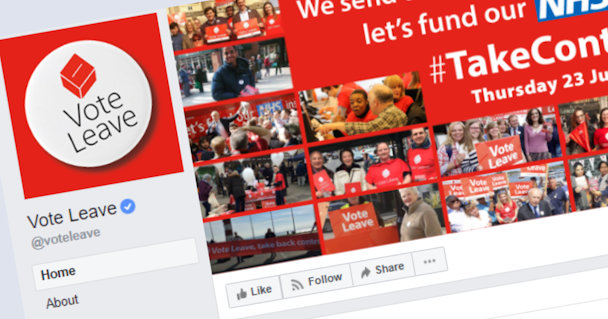UK Facebook political ads will now carry a disclaimer amid calls for regulation
Amid questions over the role it plays in a digital democracy, Facebook is to start labeling UK political ads more explicitly and verifying the identity of people who purchase political ads on its platform.

Facebook itself has acknowledged that its latest update won’t prevent abuse entirely / Facebook
Following on from similar launches in the US and Brazil, Facebook will also make it easier for people to access data about prior campaigns that have ran in Britain.
The move means political groups will no longer be able to target people with 'dark ads' on Facebook or on its sister site, Instagram.
The update comes as Facebook looks to restore trust post-Cambridge Analytica. It also follows on from a squeeze from the UK Electoral Commission on Westminster to take "urgent" action to make digital political promotions more transparent and questions over its influence in the EU referendum.
What's changed?
From Tuesday onwards (16 October), anyone who wants to buy an ad on Facebook properties that references: political figures; political parties; elections; legislation before parliament; and past referenda that are the subject of national debate (like Brexit) will have to ensure those posts carry a ‘paid for’ disclaimer.
The badge will signpost exactly who paid to promote the content.

When users click on this label, they will be able to access a searchable database called the Ad Library.
Even people who do not have a Facebook or Instagram profile will also be able to access this database. As well as seeing who paid for the campaign, they will be able to see how much was spent on the ad, its reach and other ads the page is running.
This information will live on Facebook for seven years after the initial ad is posted.
Facebook has opened up an API on the US version of this feature (Ad Archive), which will allow journalists, academics and researchers so they can easily analyse this dataset – it is believed, in time, it could do something similar in the UK.
In addition to these changes, Facebook wants to stop “bad actors” from misusing the platform by requiring anyone buying a political ad to verify their age and location with Facebook.
For instance, if an admin for the Labour Party’s official page or a member of a group supporting the Labour Party wanted to buy an ad about the Conservative Party's police cuts, they would have to submit a picture of a photo ID to Facebook (like a passport) and confirm their address by direct mail.
Facebook confirmed it would only keep these details on record for 30 days.
More ‘significant action’ required
While the social network has said it wants to "create an entirely new standard of transparency" with the series of updates, the Institute for Practitioners in Advertising (IPA) told The Drum more needs to be done to improve users' trust in online political campaigns.
"While any steps taken to improve transparency in the hyper-targeted online political advertising arena – a notoriously opaque environment – is always welcomed, to my mind this can only be regarded as a start," said its director general, Paul Bainsfair.
Back in April, the trade body made an official call to the UK Electoral Commission to pause "unaccountable" micro-targeted political ads online.
The group believes that any digital or online campaign material should carry an "imprint" to enable the public to be more confident about who is trying to influence them during election campaigns. It also wants political creative work to be listed on an official public register.
Bainsfair added: "While this latest development from Facebook may make some inroads into improving online transparency, this has to be set against the obvious point that political advertising remains unregulated and consumers have lost faith. To win back their trust will require much more significant action."
Facebook itself has acknowledged that its latest update will not prevent abuse entirely.
“We’re up against smart and well-funded adversaries who change their tactics as we spot abuse, but we believe that this higher level of transparency is good for democracy and is good for the electoral process,” it said in a blog post.
The Department for Culture, Media and Sport (DCMS) is currently investigating how to police the disinformation and fake news spread online.
When The Drum approached secretary for of state Jeremy Wright for comment on Facebook's shakedown, he said: "Online platforms should be taking the most effective steps they can to ensure transparency and I look forward to seeing the impact of these political advertising measures by Facebook.”
In the US, Facebook has removed 32 number of accounts and pages engineered to interfere in the mid-term US elections in November. The action followed the uncovering of Russian interference in the 2016 presidential election.

